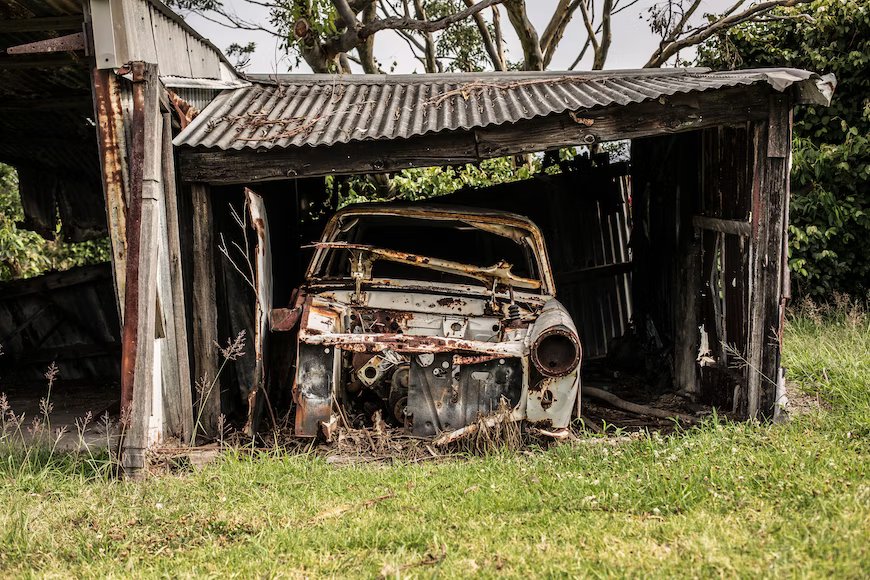Are you thinking about buying a car? Well, before you do, there are some important things you need to know, especially if you want to use cash for your purchase. Cash for cars is when you pay for a vehicle with money you have in your wallet or bank account, rather than taking out a loan or using credit. It’s a simple way to buy a car, but there are some important things to consider.
Why Use Cash for Cars?
Using cash for cars in Sydney can be a great idea for many reasons. First, it means you won’t have any monthly payments to worry about. That can be a big relief on your budget! You also won’t have to pay any interest on a loan, which can save you a lot of money in the long run.
Additionally, when you use cash, you have more bargaining power. Car sellers often like cash buyers because it means they don’t have to wait for the bank to approve a loan. This can sometimes help you negotiate a better price on the car.
How to Save Cash for Your Car
Before you can use cash to buy a car, you need to save up enough money. Saving money can be fun and challenging. Here’s how you can do it:
- Set a Goal: Decide how much money you want to save for your car. This will give you a clear target to aim for.
- Make a Budget: Create a budget to track your income and expenses. Look for areas where you can cut back and save more money.
- Open a Savings Account: Consider opening a special savings account just for your car fund. This will help you keep your car money separate from your other money.
- Automatic Savings: Set up automatic transfers to your car fund so you save money every time you get paid.
- Sell Stuff: Look around your home and see if there are things you no longer need. You can sell them to add to your car fund.
- Side Jobs: If you’re old enough, you can take on part-time jobs or odd jobs to earn extra cash.
Remember, saving money takes time, so be patient. It’s a bit like planting seeds and waiting for them to grow into big, healthy plants.
Research the Right Car
Once you have enough cash saved up, it’s time to find the right car for you. This is an exciting part of the process, but it’s important to be careful and do your homework.
- Set a Budget: Determine how much you’re willing to spend on your car. Make sure you stick to your budget so you don’t overspend.
- Research Cars: Look up different car models and their prices. Pay attention to things like fuel efficiency, maintenance costs, and reliability.
- Ask for Advice: Talk to friends or family members who know about cars. They can give you helpful advice and may even come with you to check out cars.
- Check Car History: If you’re buying a used car, get a report on the car’s history. This will tell you if it’s been in any accidents or had major repairs.
- Test Drive: Always test drive a car before you buy it. This will help you see how it feels to drive and if there are any problems.
- Get a Mechanic’s Opinion: If you’re unsure about a car, take it to a mechanic for an inspection. They can tell you if the car is in good condition.
Negotiating the Price
When you find a car you like, it’s time to negotiate the price. Negotiating means trying to get the best deal possible. Here’s how you can do it:
- Start Low: Begin by offering a lower price than what the seller is asking for. This gives you room to go up in price if needed.
- Be Polite: Always be polite and respectful when negotiating. Being rude won’t help you get a better deal.
- Know Your Budget: Stick to your budget. Don’t let the seller pressure you into spending more than you can afford.
- Point Out Flaws: If you find any issues with the car during your inspection, use them as points to negotiate a lower price.
- Walk Away if Necessary: If the seller isn’t willing to come down to a price you’re comfortable with, don’t be afraid to walk away. There are plenty of other cars out there.
Paperwork and Payment
Once you and the seller agree on a price, it’s time to complete the paperwork and make the payment.
- Bill of Sale: You’ll need a bill of sale to document the sale. This is a legal document that shows the price you agreed upon and other details about the car.
- Title Transfer: Make sure the seller provides you with a clean title for the car. This shows that they are the rightful owner.
- Payment: When you pay in cash, it’s important to count the money together with the seller and get a receipt. This ensures there are no misunderstandings.
- Insurance: Don’t forget to get car insurance before you drive your new car home. It’s a legal requirement in most places.
Conclusion
We buy cars for cash in Sydney can be a smart and budget-friendly choice. It can save you money on interest and monthly payments, and it gives you more negotiating power. However, it’s important to save money diligently, research the right car, and be prepared to negotiate. With careful planning and patience, you can drive away with the car of your dreams without breaking the bank. Happy car shopping!
FAQs: Cash for Cars – What You Need to Know Before You Buy
-
What is the concept of “Cash for Cars”?
- “Cash for Cars” is a transaction where you sell your vehicle to a buyer or dealership in exchange for immediate payment in cash or a check. It is a common way to quickly get rid of an old or unwanted vehicle.
-
Who typically buys cars for cash?
- Various buyers purchase cars for cash, including private individuals, used car dealerships, auto salvage yards, and online car buying services. The choice depends on your preferences and the condition of your vehicle.
-
What types of vehicles can I sell for cash?
- You can sell almost any type of vehicle for cash, including cars, trucks, SUVs, motorcycles, and even damaged or non-running vehicles. The value you receive will depend on factors like the make, model, age, condition, and market demand.
-
How do I determine the value of my car before selling it for cash?
- You can estimate your car’s value by researching its make, model, year, mileage, and condition. Online valuation tools and consulting with experts or local dealers can also help you determine a fair price.
-
What paperwork do I need to sell my car for cash?
- Typically, you’ll need the vehicle’s title, a valid ID, and any relevant maintenance or repair records. Some states may have additional requirements, so it’s essential to check your local regulations.




